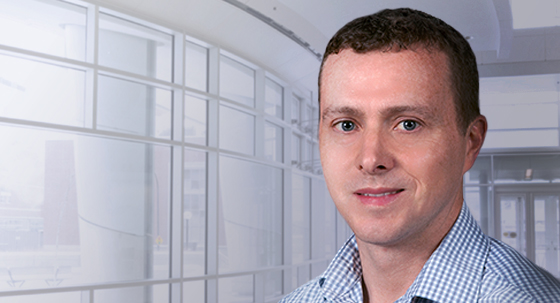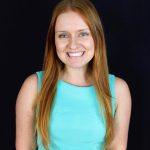An anatomic pathologist? What’s that?

An anatomic pathologist? What’s that?
Eric Snook, DVM, PhD, DACVP
1997 BA in biology and minor in chemistry
Anatomic Pathologist
Texas Veterinary Medical Diagnostic Laboratory
Eric answers questions about his career, getting there and the impact FPU had on his life.
Q: An anatomic pathologist? Sounds scientific and interesting. What do you do?
A: A veterinary anatomic pathologist works closely with family veterinarians to help answer the question of what illness one’s pet might be experiencing. As a pathologist, I receive biopsies from veterinarians treating numerous different types of species (i.e. dogs, cats, horses, cows, snakes, frogs, etc.) and give a diagnosis so that the veterinarian can develop the best treatment plan for that animal. Additionally, I do animal autopsies (necropsies) on animals that owners or farmers or zoos want to know why the animal died. It’s my job to do a detailed investigation of the animal during the autopsy to determine a potential cause of death and help the owner understand what most likely happened. Finally, pathologists are important in detecting foreign animal diseases. A veterinary anatomic pathologist was the first in the medical community to recognize West Nile virus in the U.S.
A typical day at my job involves me sitting at a microscope examining tissues from pets and production animals under a microscope. On any given day I might diagnose cancer in one animal, a toxicity in another and an infectious disease in a third. I routinely get a wide variety of cases on most days. Occasionally, I spend time on the necropsy floor receiving entire animals submitted for necropsy. I am often called by veterinarians during the day for advice on how to submit their cases or the best way to achieve a diagnosis. At the heart of it all, my job is to try to help veterinarians submitting cases to me get the most accurate diagnosis so they can relay accurate diagnostic and prognostic information to the owners of the animals they are dealing with.
Q: That’s pretty cool. How did you become interested in this field?
A: I’ve always been interested in veterinary medicine. It was something I’ve wanted to do ever since I could remember. During the summer immediately following graduation from FPU, I was accepted into a program at the San Diego Zoo in the pathology department. My job consisted of autopsying a variety of animals ranging from opossums and ducks to more exotic animals like giraffes and cheetahs. The ability to understand why an animal was sick or died based on the appearance of its internal organs was fascinating to me. Following that experience I continued to work with pathologists at Iowa State University and began to realize I really did enjoy this kind of work.
Q: In addition to your degree from FPU, what additional education do you have? Did your education here provide good preparation for you?
A: Following my bachelor’s degree at FPU, I attended veterinary school at Iowa State University (4 additional years). To get the job I currently hold as an anatomic pathologist, I completed a residency in pathology at LSU’s School of Veterinary Medicine (3 additional years), and I completed a Ph.D. in biomedical sciences following that program (3 more years). Fresno Pacific’s education provided me with a well-rounded foundational education. In addition, it helped me develop a strong work ethic (especially as part of the cross country and track teams) that served me well during the rigorous training in veterinary school, the pathology residency and the Ph.D.
Q: Wow! That is a lot of school! Thinking back to your time at FPU, what do you find most significant to you now?
A: I was blessed by many people at FPU and through many experiences, but two people helped me understand some of the keys to life’s struggles and challenges. The first person was Dr. Michael Kunz. I knew I wanted to go to veterinary school before I attended college, and I wanted to make sure I took all the pre-requisites necessary to graduate and attend veterinary school. I remember being so overwhelmed trying to plan my college courses, making sure I didn’t miss a semester when a particular class was offered. I asked Dr. Kunz for help, and he took me to lunch and mapped out my class schedule for the entire four years so that I could finish without missing out on any pre-requisites. During my first year of veterinary school I called Dr. Kunz again because I was worried I would fail out, and he helped me see things from a new perspective that helped me succeed.
The second person was Coach Eric Schwab. I was fortunate to attend FPU when I did. I didn’t have exceptional athletic abilities. I never set any records. I don’t think I ever won any races, and I routinely finished in the middle of the pack in cross country and track. But Coach Schwab recognized that I was willing to work hard and allowed me to keep my cross country and track scholarship while I was there. Looking back now, I realize that working hard at cross country and track trained me to work hard in other areas of my life—keep plugging along, not quitting even when I can easily tell I’m not the most talented person in the mix. Coach Schwab definitely helped me realize the value of hard work, even in the face of what most people would call mediocre talent.
Q: What is your favorite memory of FPU?
A: Some of my favorite memories at FPU involve my time travelling to and from our practice track at Sanger High School—back when FPU’s track was an unimproved field of dirt clods beyond the soccer fields—and travelling to and from FPU on road trips. My cross country and track teams became like family to me, and I truly value the friendships I gained during those times.
Q: Thanks for reminiscing with us. What about your life now—outside of work?
A: I met my wife, Tara, in vet school, and we married a few years later. We currently have three children: Taylor (7), Michaela (4), and Corban (6 mo). During veterinary school, the Ph.D., the residency and early fatherhood, I’ve had little time to pursue outside hobbies, but recently I’ve become more interested in photography. Photography gives me the ability to capture moments in my family’s life that I want to remember, as well as the beauty of God’s creation that we all get to experience on a daily basis.




